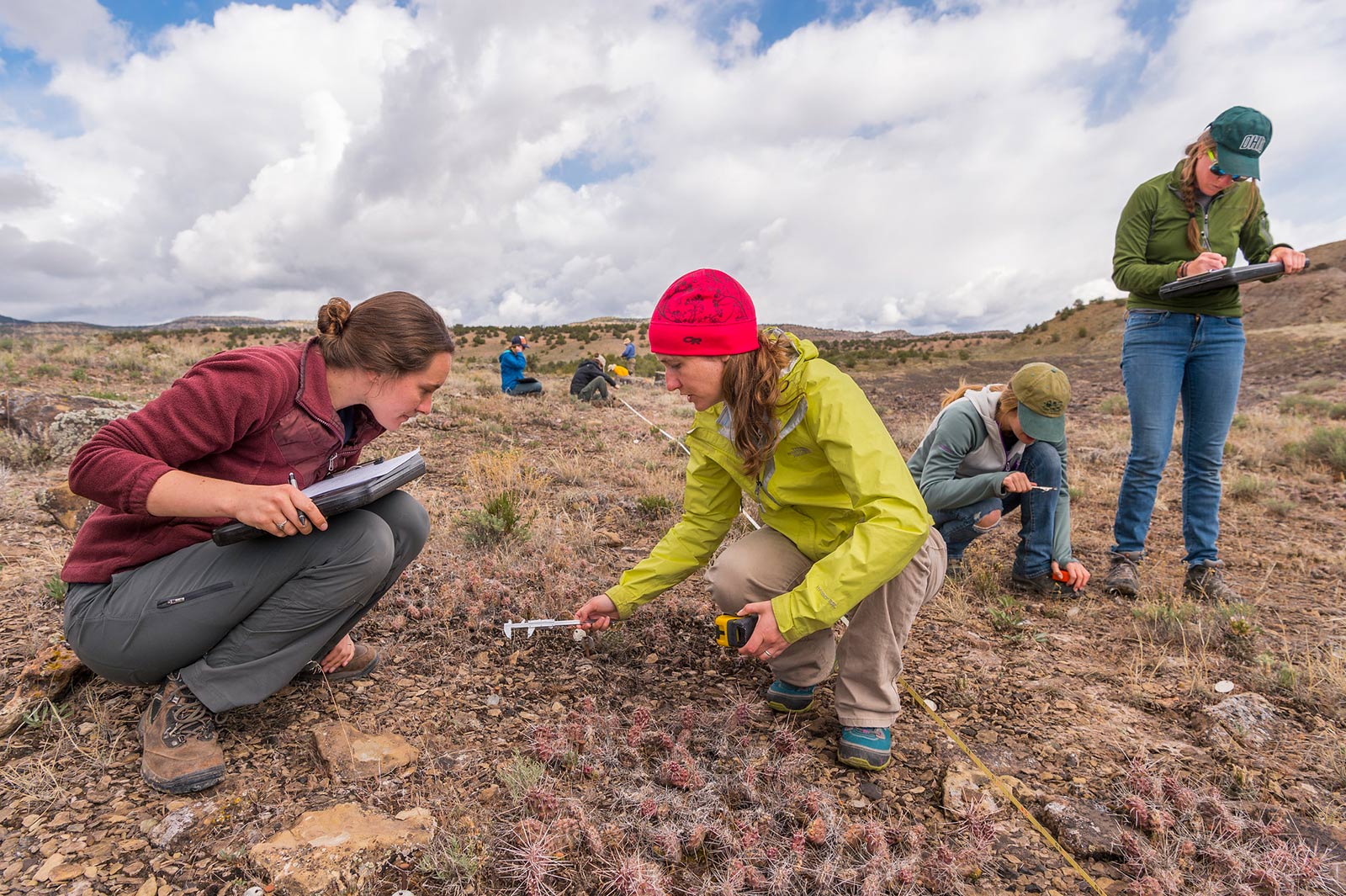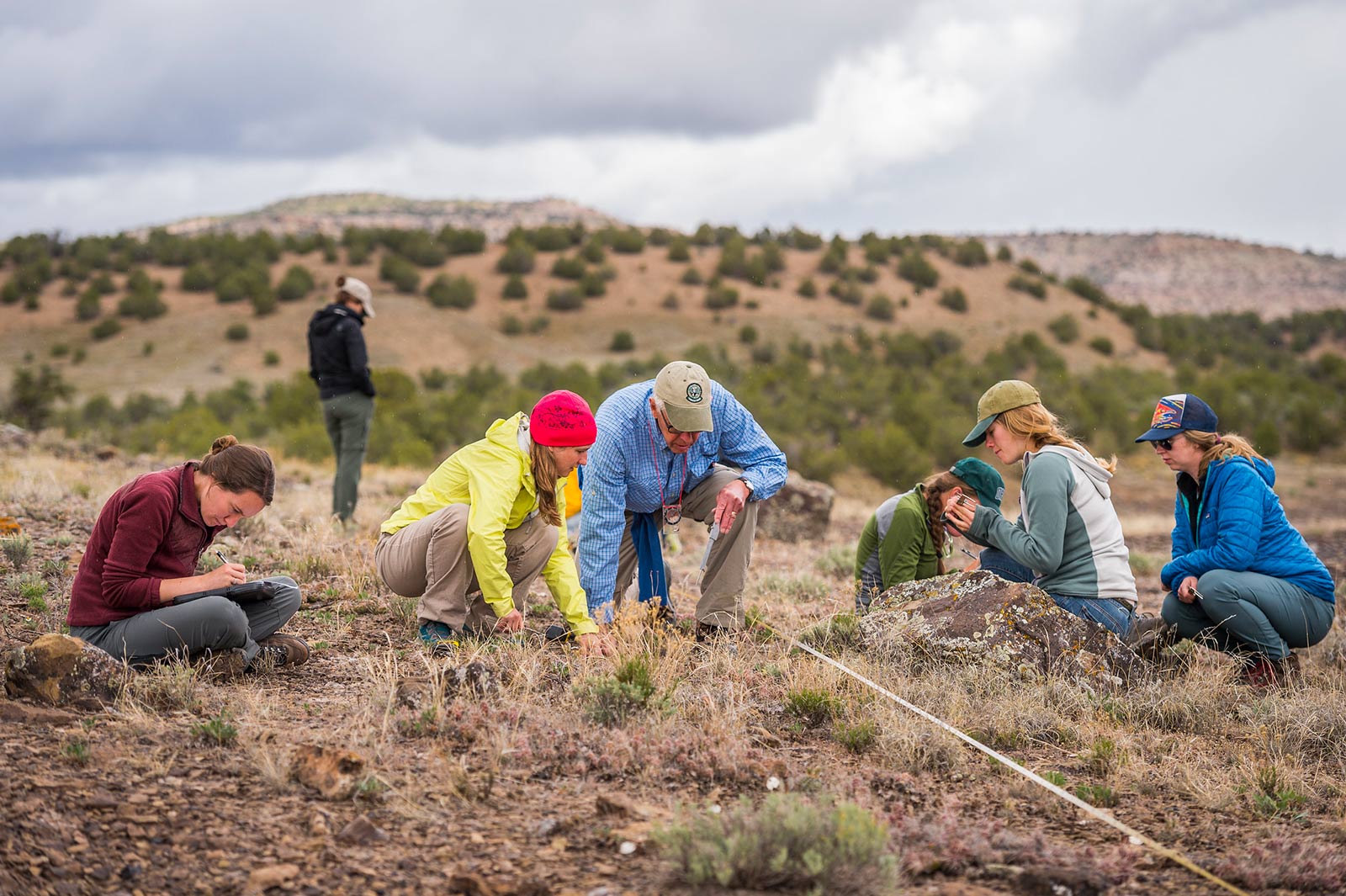Catherine H. Beattie was an outstanding floral arranger and gardener devoted to the preservation of wildflowers, serving as president of the Garden Club of America (GCA) from 1981 through 1983. Following her passing, the GCA established a fellowship in conservation horticulture in her honor. The fellowship serves to promote the rare and endangered flora of the U.S. through the Center for Plant Conservation. As such the CPC has worked with the GCA to solicit and review applications from graduate students conducting projects on endangered flora, especially the flora of the Carolinas and the southeastern United States. Since 1986, CPC has led the selection of 49 Catherine H. Beattie Fellows, with the GCA providing funding to support their work and helping them take steps towards furthering their careers in plant conservation. Learn about the two most recent Beattie Fellows and catch up with an alum continuing to prioritize plant conservation in her research career.
Seed Collections and Lifespans: How Much Can a Population Give?
Catherine H. Beattie Fellowship recipient Michelle DePrenger-Levin is a non-traditional student, working at the Denver Botanic Gardens while working towards a Ph.D. through the University of Colorado, Denver, Department of Systems and Integrative Biology. Her dissertation project digs into the heart of a matter of great importance to the CPC network.
Seed collection can prevent the loss of biodiversity from natural or anthropogenic events that cause the extirpation of small populations. However, removing seed from small populations can increase extinction risk. Michelle is examining how well the current rule of harvesting 10% of a population’s seeds does (or does not) balance conservation needs.
Current restrictions on seed harvest, meant to limit risk, are based on simulations of a few perennial species with limited demographic data. Michelle’s study examines the universality of the 10% threshold across lifespans, from annuals to long-lived perennials. To account for variable population responses, she uses a range of transition matrices and simulates different harvesting practices in years with high vs. low seed production.


Michelle’s results thus far reveal that species vary in their response to the current 10% rule of harvest throughout their lifespan, as simulations model periods of boom or bust years. In future simulations, she will examine other scenarios that collectors face and how they make decisions to collect more or less seed. It’s clear already that the current single threshold for seed collection does not adequately address the risk to species with different traits or the practical constraints of seed harvesting. A more nuanced understanding of the impact of seed harvest on rare plants will help create flexible seed harvest thresholds that help achieve broad collection goals.
“The Catherine H. Beattie fellowship funds have helped Michelle facilitate collaborations, collect data from various sources to build matrix population models of annuals, and dedicate time to build and run simulations.”
The Catherine H. Beattie Fellowship funds have helped Michelle facilitate collaborations, collect data from various sources to build matrix population models of annuals, and dedicate time to build and run simulations. This task has proved particularly challenging in the wake of COVID-19. Pandemic-related stress and hardship have caused collaborators to turn their attention away from Michelle’s project, and the cancellation of the CPC annual meeting has limited her ability to bring all interested parties together to workshop the project. She has stepped up to this challenge with the help of virtual meetings and data-sharing platforms, and is modifying simulations to meet the data that are available.
Michelle’s project has enabled her to make connections outside her institution, collaborating with and learning from plant conservation scientists across the CPC network and beyond. These connections are just one of the aspects of her research that will enhance her conservation career. She plans to use the computational skills acquired through her degree to develop projections of rare plant responses to climate change and conservation actions. In being chosen a Beattie Fellow, Michelle is “excited to be among scientists that are furthering conservation and should be leaders in their field.” She hopes to be such a leader and start her own applied conservation program at Denver Botanic Gardens.